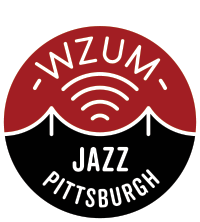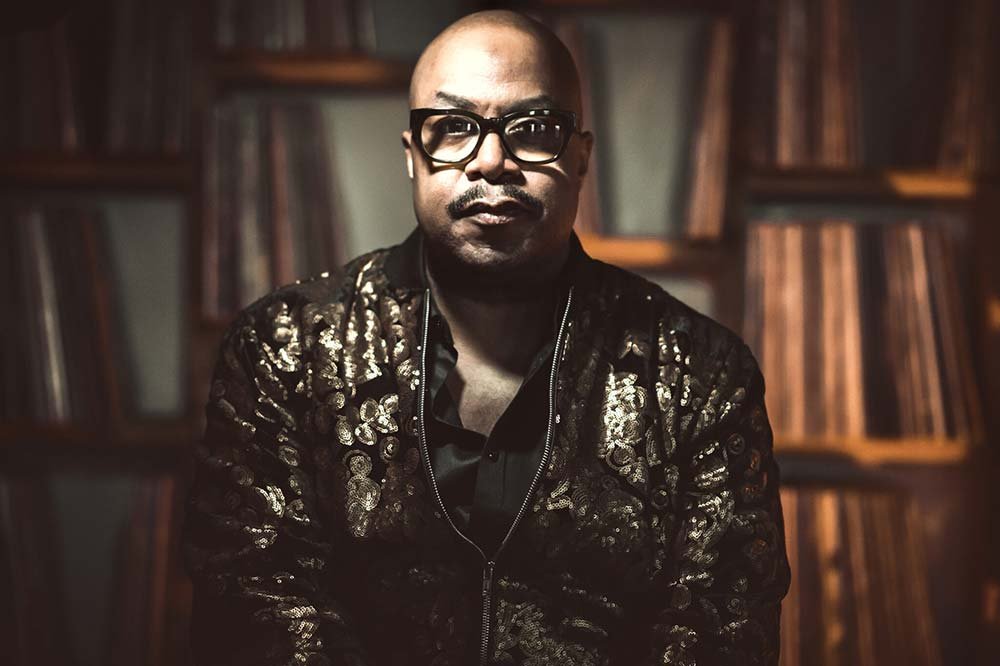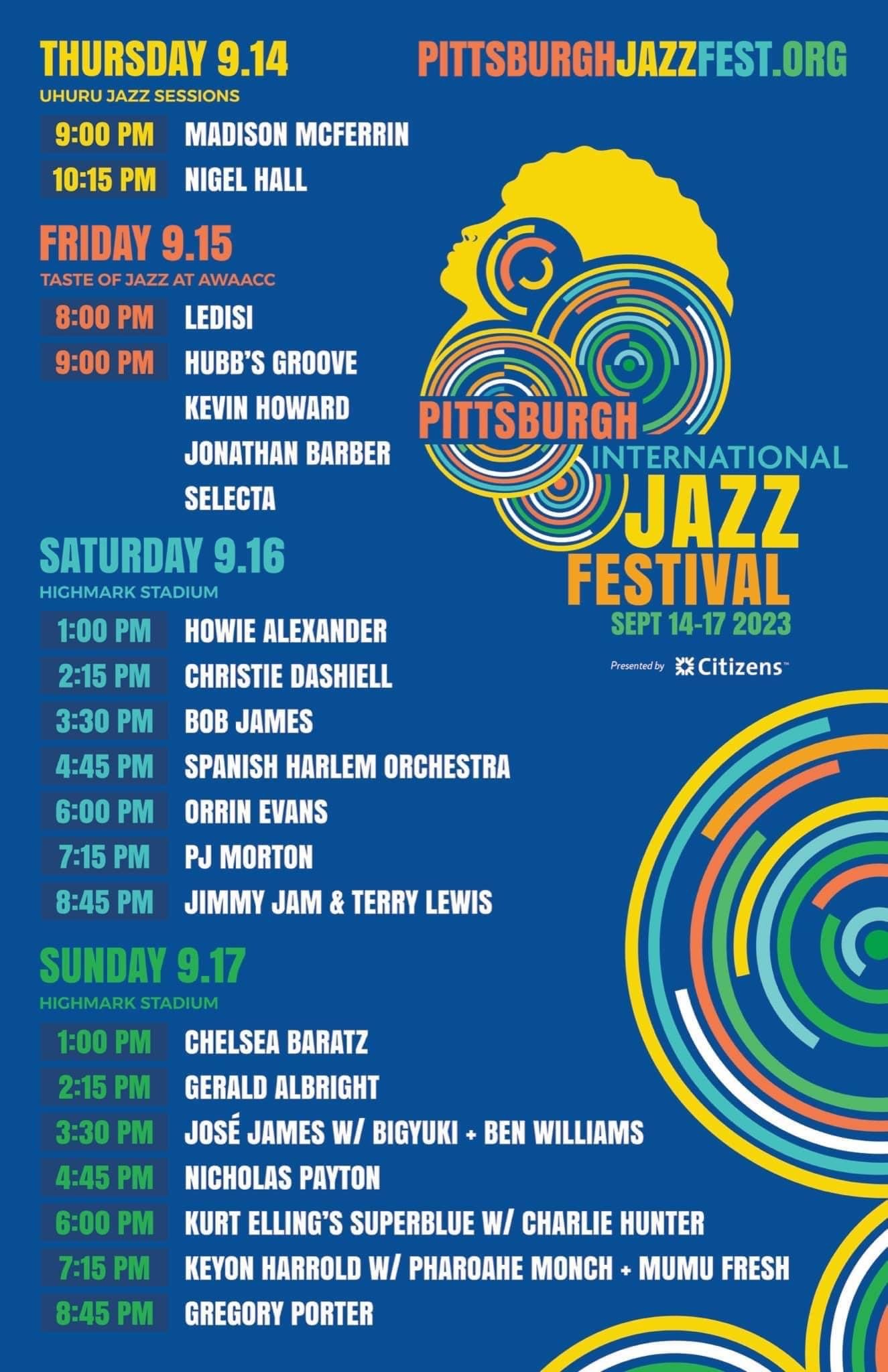Trumpeter Nicholas Payton is very broad in his musical approach, and also in his instrumentation choices - from trumpet to keyboard and even bass. His years in New Orleans include influences from his musical parents as well as many others - and Clark Terry opened even more doors and ears. He plays at the PIJF Sunday September 17 at Highmark Stadium. We talked a bit about music, family and the importance of getting together with other musicians, young and old.
Nicholas Payton
Scott Hanley, WZUM
Nicholas Payton, you are a musician with far more diverse experiences and talents than people really know. We've recently seen and heard you at the piano on some of the smoke session projects, but also you have the Maestro Rhythm King project and this new band you're bringing for the festival in Pittsburgh, which is much more electric.
Nicholas Payton
Yeah,
I mean, I've grown up listening to all styles of music, you know, both of my parents being musicians. My mom is a classical pianist and former operatic singer. My dad was well known for doing all sorts of styles from playing with Allen Toussaint and a lot of his productions in the sixties. My dad played electric bass on Lee Dorsey's “Working on a Coal Mine,” Aaron Neville’s “Tell it Like it is.” And after a while he decided he wanted to focus exclusively on acoustic bass and did that for the remainder of his career. So, growing up in that in New Orleans, having two musical parents and being exposed to the New Orleans scene of some of the greatest musicians in the world, I heard everything. And there was never really any hierarchy in terms of style or genre classification. It was just as long as it was soulful, that was good music.
WZUM
Well, music can be rich, deep and wide and for you also including symphonic things too, of late.
Nicholas Payton
Yeah. Yeah. I've written two symphonies to date. The first symphony I wrote back in 2012, the Black American Symphony has just received a grant from South Arts to get that recorded, so look out for that sometime soon.
WZUM
Talking about your career, you did start out not only with a great musical environment around New Orleans, but also working alongside some legendary performers like Clark Terry and Doc Cheatham and so many others.
Nicholas Payton
Indeed. Yeah, You know, I realized that I was being mentored, you know, by the greats. And, you know, a lot of these artists were like my aunts and uncles, you know. And as I got older, my appreciation grew for, being exposed to their brilliance. And then later on, when once they got serious, taking the time to hire me on gigs and to take me under their wing. Clark Terry was really the first person to kind of put me on the international stage. You know, when I was 12 years old or so, and it was through him that I actually met Doug Cheatham. I was working in Clark's band at the time on a cruise ship on the S.S. Norway, and that's the first time I met Doc. So, Clark Terry was kind of the link to me being in a less of a, you know, a local musician and more on the world stage.
WZUM
Paying it forward as is really part of what music and creativity really should be about, because that's how it endures.
Nicholas Payton
Absolutely. It's all about lineage. Sure.
WZUM
Well, the band you're bringing with us, that that is the same band that you played with in New York this week, correct? That's a Drop The Body band.
Nicholas Payton
Yeah, it's we have Cory Fonville on drums and David Ginyard on bass and Max Bronstein on guitar.
WZUM
And on this band. You'll be mostly playing keyboard, I presume.
Nicholas Payton
And trumpet. Oh, yeah, both, actually. Yeah. Mm hmm.
WZUM
Well, I also saw you with a with an upright bass. Kind of an homage to your father, I suppose.
Nicholas Payton
Yeah, depending on the gig. I do that sometimes. Mostly these days. I played bass in a group that I have with Sasha Masakowski and Cliff Hines called New World Order. Our first album, we may have potentially released the world's first COVID 19 quarantine album called “Quarantine with Nick,” which was kind of a spoof on my previous album at that time, “Relaxing with Nick.” So, Sasha man's several loopers and I take various keys and horn and bass and send them to the loopers and recreate grooves and beats in real time. Cliff as he plays modular synth, So he's kind of the atmospheric, futuristic part of our group sound.
WZUM
Very cool. How are things musically in New Orleans these days? I mean, everyone's had a challenge coming back for, of course, from New Orleans, coming back from Katrina and then coming back from COVID.
Nicholas Payton
Yeah, I mean, I would say it's where it was before in terms of gigs and activity. You know, only thing that maybe change is maybe things don't stay open as late. But I found that everywhere, even in New York, things seemed to close early, now, for whatever reason, even though the level of activity pretty much still seems to stay the same.
WZUM
I have noticed that two things generally are not hanging as late as they used to. But I guess we all need sleep, so that's not a horrible thing.
Nicholas Payton
Yeah. Yeah. Hopefully things will get poppin’ the way it was before because, you know, this music has always been a late night music and that's a part of the hang as well. You know the earlier folks of course, sure, but yeah I'd like to see things stay open later, you know, because sometimes things don't get really moving until maybe midnight or so.
WZUM
Right. Although, the 4 AM hangs out outside of Bradley's in New York, that's a different story.
Nicholas Payton
Epic. Epic. I still miss those days. I don't think New York has been the same since Bradley’s was closed. It was definitely the end of a certain era, you know. And there have been several clubs that try to pick up the slack. But I don't think anything yet has come close to what Bradley's I think had that was unique is that everyone went to hang there, young and old in every order and everything in between. There doesn't seem to be a place where all the generations seem to go yet, so sorely missed, Bradley’s.
WZUM
Yeah, well, a hang is really important for good creativity, that's for sure. But we hope to hope a lot of folks will come hang with us for the Pittsburgh International Jazz Festival, you're playing with your band Drop the Body at the festival on Sunday, September 17th.
Nicholas Payton
Yeah, we're looking forward. It's going to be my first time at the festival, so really looking forward.
WZUM
Well, Nicholas Payton, thanks so much for your time and your music and the broad array of things you bring to the table.
Nicholas Payton
Thanks, Scott. Appreciate the support and the time and wish you all the best.


